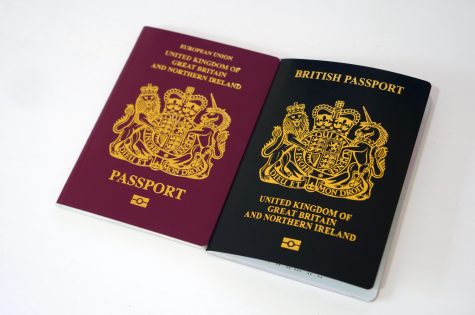Before renting or letting a property, there are several checks for both the tenant and landlord. This includes ‘right to rent’ checks. But what is the ‘right to rent’, and who has it? These answers to frequently asked questions will clarify who can rent homes in England, and how you can prove your status.
FAQs
What are right to rent checks?
The 2014 Immigration Act made it harder for illegal immigrants to access rental homes by requiring all adult tenants to prove they are legal UK residents. This process is called a “right to rent” check. When a prospective tenant applies to rent a property as their main home, the landlord or letting agent will ask to see identity documents.
Acceptable documents include a valid passport or a combination of a UK driving licence and a birth certificate. Foreign nationals may need an ID card or passport alongside a visa, proof of settlement status, or a Biometric Residence Permit (BRP).
Is right to rent a credit check?
The right to rent check is not a credit check. It’s not a check to determine if you can afford the property’s rental rate. It is purely there to determine if you have the legal right to rent the property.
Who is exempt from right to rent checks?
According to homelessness charity Shelter, only adult occupiers living in private, rented accommodation as their only or main home need to provide evidence of their right to rent. Children under 18 are exempt from right to rent checks. However, landlords may ask to verify their age.
Long-term house guests are also exempt from right to rent checks if their main home is elsewhere.
When should right to rent checks be carried out?
If you are a landlord or letting agent, you must meet up with the new tenant and ask them to show you original identity documents that prove their right to live in the UK. This should happen within 28 days before the start of the tenancy. If the tenant only has a time-limited residency, they must prove that they have a visa or Biometric Residence Permit that is still valid for the proposed start date.
Do UK citizens need to prove the right to rent?
Even if you were born in the UK, you’ll still have to prove your status as a UK citizen or permanent resident to begin a tenancy. Requiring all adults to complete rent checks avoids discrimination and makes it harder for illegal immigrants to slip through the net.
How do I know if I have the right to rent in the UK?
If you are a British or Irish citizen, you automatically have the right to rent in the UK. You also have the right to rent if:

- You have Indefinite Leave to Remain (ILR) status.
- You’re in the UK under refugee status or have been granted humanitarian protection.
- You possess a valid work or student visa.
- You’re in the UK having settled or with pre-settled status under the EU settlement scheme.
- You have a time-limited right to rent (granted by the Home Office).
You will need to prove any of the above by presenting valid identity documents at the landlord or letting agent’s request. Documentation such as utility bills must be dated within the last three months and match the address you supplied when applying for a tenancy.
What is the penalty for not conducting right to rent checks?
Landlords who rent to someone who they knew, or had ‘reasonable cause to believe‘, was not entitled to rent in the UK are breaking the law. This also includes knowing that a tenant’s leave expired or their papers were incorrect or false.
Failing to conduct adequate checks can result in a five-year prison sentence or an unlimited fine for landlords. The Home Office may ask a landlord to prove they have conducted right to rent checks. The landlord may receive a ‘referral notice’ to warn them that the Home Office is investigating their case and they may get a fine.
A first-time offence is currently £80 for landlords who illegally rent to lodgers in a private home or £1,000 for tenants in rental properties. For further offences, this rises to £500 and £3,000, respectively.
2024 update: The UK Government brought in new legislation that came into force in January 2024. The new penalties for repeat offences have been increased to £10,000 per lodger and £20,000 per occupier.
Does a guarantor need a right to rent check?
Although a guarantor should live permanently in England or Wales, they won’t have to prove their right to rent. However, they will need to supply the relevant identity documents and pass referencing checks as normal. If you are renting a home with the help of a guarantor, you’ll still have to undergo residency checks yourself.
Read more
Can you rent a house without a passport?
Yes – as long as you have other identity documents that confirm your right to rent. British nationals should present ID such as a driving licence and an original UK birth certificate. Other documents such as recent utility bills and bank statements in your name can support your application.
Since July 2021, EEA citizens must prove their immigration status to stay in the UK. While an EEA passport or national identity card proves their identity, they must show evidence of their lawful immigration status to rent. This is the same for people from all other nationalities, except Irish citizens. If you have an eVisa, you’ll need to use the Home Office’s online service to prove your right to rent. You can also use a Biometric Residence Permit to secure a rental.
Can you rent with an expired passport?

An expired (but genuine) passport issued within the UK may be accepted as evidence for your right to rent. However, it may be easier to provide other IDs instead, such as a driving licence or a UK birth certificate. Foreign nationals will have to prove their settled status as well as their identity.
Can I rent to an asylum-seeker?
Landlords can rent to asylum-seekers who have been granted limited leave or resettled status. Asylum-seekers awaiting the outcome of their application may stay with friends or family, but can’t rent in the UK. If the tenant has limited leave to remain, the landlord must see the renewed documents before extending the tenancy. These requirements apply to all adults in the household.
What if a tenant does not have a right to rent?
If you are already renting to a tenant and find out that they do not have the right to rent, it will be necessary to evict them. Landlords who rent to tenants with no right to rent are liable to criminal prosecution, which may involve fines of up to £20,000 and even jail time.
Evictions are usually court ordered, but some cases allow for evictions without a court order. If you are unsure about the legal right to rent status of your tenants, it is essential to check with the proper authorities without delay.
Right to Rent in the news
Digital providers
The government has approved the first two providers of a digital identity verification system intended to bring the country’s policing of immigration issues into the 21st century. The Post Office and Yoti can now verify an individual’s right to rent a home and work legally in the UK. Read more here.
HomeViews provides verified resident reviews of the UK’s housing developments. We’re working with developers, landlords and the Government to recognise high performers and help to improve standards in the built environment.



















